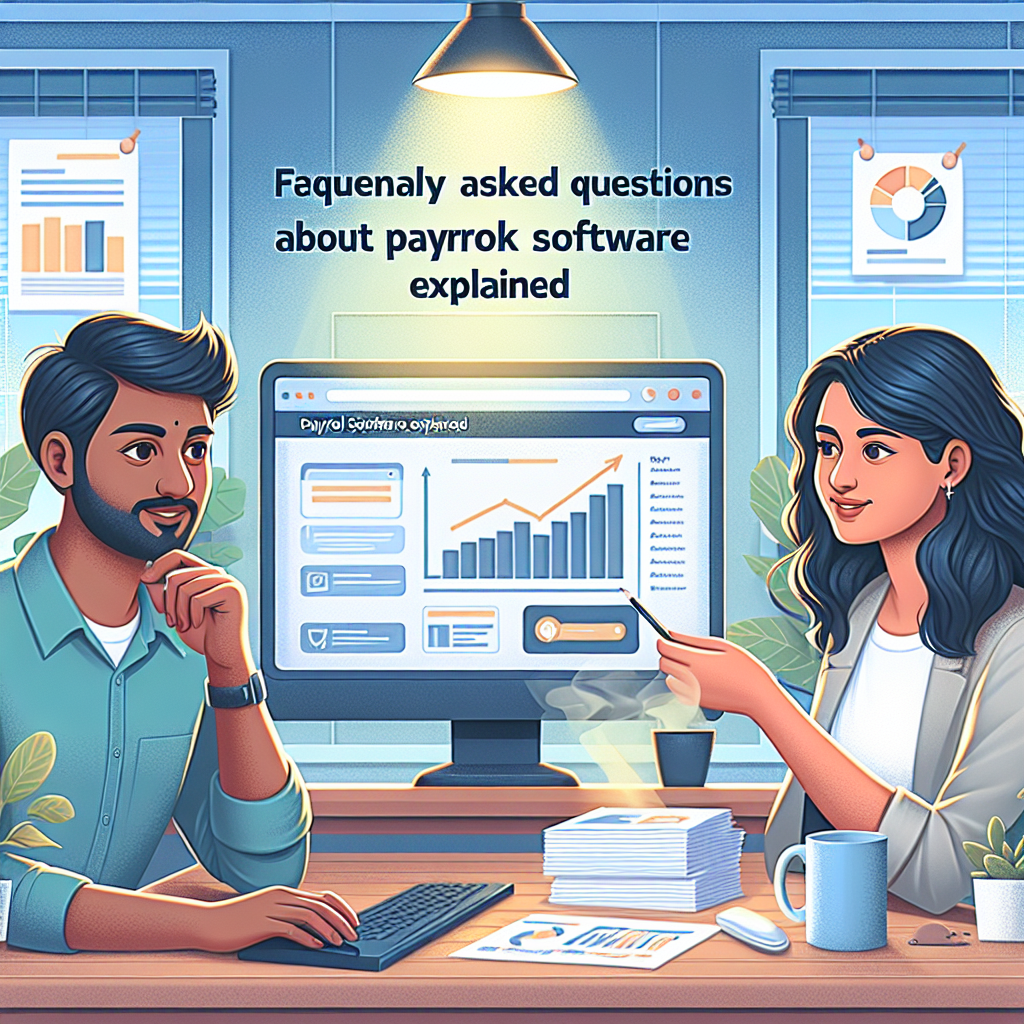As businesses grow, managing payroll can become increasingly complex and time-consuming. Fortunately, payroll software has emerged as a game changer, simplifying the payroll process for companies of all sizes. But with so many options on the market, questions often arise. In this article, we’ll address some of the frequently asked questions about payroll software, demystifying this essential tool for business owners and HR professionals alike.
What is Payroll Software?
Payroll software is an automated system used to manage and streamline the payroll process. It handles various tasks, including calculating employee wages, processing tax deductions, managing benefits, and generating pay stubs. By automating these tasks, payroll software saves time and reduces the risk of errors, making it an invaluable asset for businesses.
Why Should I Use Payroll Software?
Using payroll software can significantly enhance efficiency and accuracy in handling payroll. Here are a few reasons why implementing payroll software is advisable:
-
Time-Saving: Automating calculations and paperwork reduces the hours spent on payroll processing.
-
Error Reduction: Manual payroll can lead to mistakes, but payroll software minimizes human error through automated calculations.
-
Compliance: Payroll software often includes tax updates and compliance reports, helping businesses adhere to local, state, and federal regulations.
- Employee Empowerment: Many payroll systems offer self-service portals where employees can access their pay stubs, tax forms, and benefits information.
What Features Should I Look for in Payroll Software?
When selecting payroll software, it’s essential to choose a system that meets your business’s unique needs. Here are additional features to look for:
-
User-Friendly Interface: A straightforward design can enhance usability and streamline training for your HR team.
-
Integration Options: Ensure the software can integrate with other systems like time-tracking tools and accounting software.
-
Mobile Access: Look for options that allow employees to access their information via mobile devices to promote convenience.
- Robust Reporting Tools: Effective software should offer customizable reporting features to help monitor labor costs and compliance.
How Much Should I Expect to Pay for Payroll Software?
Payroll software pricing varies widely based on features, the number of employees, and the vendor. On average, businesses can expect to pay anywhere from $20 to $100 per month, plus additional fees based on the number of employees. Some companies offer tiered pricing or per-employee fees, so it’s important to evaluate your specific needs and budget before making a decision.
Is Payroll Software Secure?
Security is a critical concern when it comes to payroll processing, given the sensitive nature of employee information. Reputable payroll software providers employ advanced security measures, including data encryption, multi-factor authentication, and regular security updates. Always read reviews and seek out software vendors with a strong track record in security to ensure your business data is well-protected.
How Easy Is It to Switch to a New Payroll System?
Transitioning to a new payroll system may seem daunting, but many software providers offer support during the migration process. Here are steps typically involved:
-
Data Backup: Ensure your existing payroll data is backed up.
-
Importing Data: Most software solutions offer tools to import your existing data easily.
-
Training: Take advantage of the training resources provided by the new software company.
- Testing: Before fully implementing the new software, run a test payroll to ensure everything functions correctly.
Can Payroll Software Handle Multiple States?
Yes, Payroll software often comes equipped to handle payroll for businesses that operate in multiple states. Many systems automatically calculate state and local taxes, making it easier to comply with varying regulations. Be sure to confirm that the software you select can accommodate the specific states where your business operates.
Conclusion
In today’s fast-paced business environment, payroll software is a crucial tool for streamlining operations, enhancing accuracy, and ensuring compliance. By understanding the essential features, costs, and security measures, you can choose a payroll system that meets your needs. With the right software, managing payroll can transform from a burdensome task into a seamless process, allowing you to focus on what matters most—growing your business and supporting your employees.
Want to learn more about payroll software? Explore our comprehensive resources or consult with payroll experts to find the right solution for your company’s unique needs.


